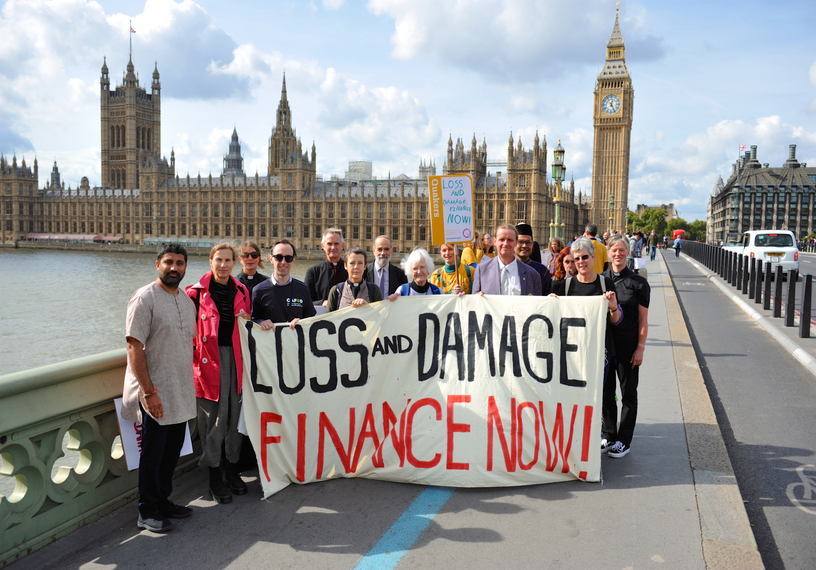Quakers endorse calls for wealthy nations to stop blocking funding for climate loss and damage
Thirty-one years after the first calls for financial support for those wrestling with climate disasters, a new brief calls for a loss and damage finance facility to be agreed at COP27 in Egypt.

Quakers are among more than 20 organisations to have put their name to the document from the Loss & Damage Collaboration, which outlines the delaying tactics used by developed countries to block progress.
The brief includes a timeline of delay, with developing countries' pushes for finance laid out alongside extreme weather events, rising CO2 and fossil fuel industry profits.
In the report, Mia Amor Mottley, Prime Minister of Barbados, writes: “Loss and damage are three to four times more on the frontline than the backline and in many places like the Caribbean, climate and other natural disasters account for 50% of the long increase in public debt.
“On the frontline the climate crisis is leading to a silent debt crisis which will lead to a development crisis. The Paris agreement was reached with the promise of a mechanism to fund loss and damage."
Quakers call for the UK government to pledge support for a loss and damage fund, to compensate communities experiencing the devastating impact of the climate crisis.
In recent weeks, Denmark has pledged finance for loss and damage and the European Parliament has passed a resolution calling on countries to allocate new and additional finance at COP27. As things stand, the UK remains opposed to the creation of a fund.
Paul Parker, recording clerk of Quakers in Britain, said: “Our faith calls us to strive for equality for all human lives. We cannot leave the poorest communities in the world to struggle with a crisis they did the least to cause.
“The UK is one of the highest historical contributors to global emissions, and it is still a huge contributor to the crisis.
“That doesn't exonerate other countries from their responsibilities. But the UK must step up and acknowledge its responsibilities without deflecting blame or pointing the finger at others."